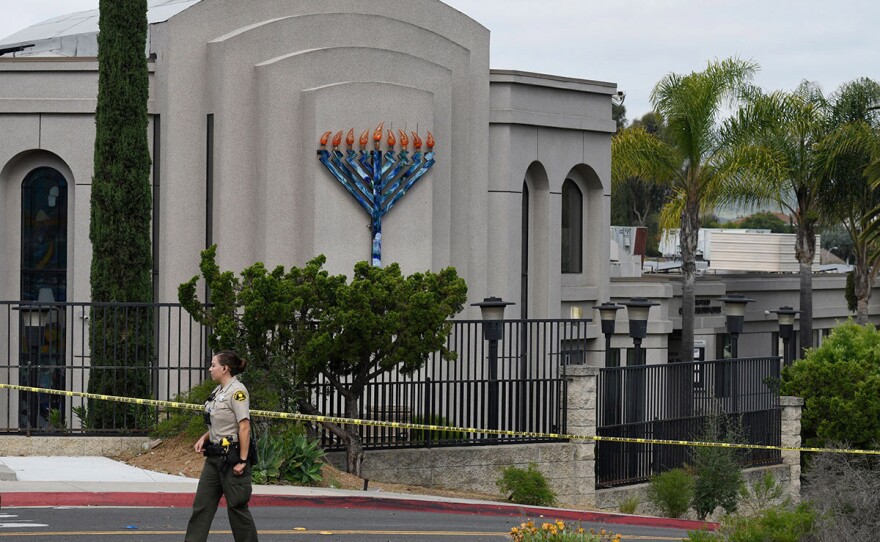John Earnest was led into court in a dark blue jumpsuit, wearing shackles and handcuffs.
He wore his hair in a buzzcut and only spoke once to U.S. Magistrate Judge Michael Berg, quietly affirming his plea of “not guilty.”
One of Earnest’s attorneys asked the judge to allow Earnest to appear in court without shackles and handcuffs, saying she had received assurances from the U.S. Marshal Service that he was not a threat.
RELATED: Synagogue Shooting Suspect Pleads Not Guilty To Hate Crimes
The government disagreed, citing the seriousness of the allegations. The judge sided with the prosecutor and refused the request.
Earnest faces 113-counts, which include 54 hate crime allegations and 54 allegations of interfering in the exercise of religious belief.
RELATED: Suspected Poway Synagogue Shooter Could Face Death Penalty On Federal Hate Crime Charges
He has also pleaded not guilty to state murder charges. Earnest is accused of murdering Lori Kaye, who was worshipping at Chabad of Poway when authorities say Earnest entered the building and opened fire. Three other people were wounded, including the rabbi, Yisroel Goldstein.
The government has not yet decided whether to seek the death penalty.
He’s due back in court on June 24.







